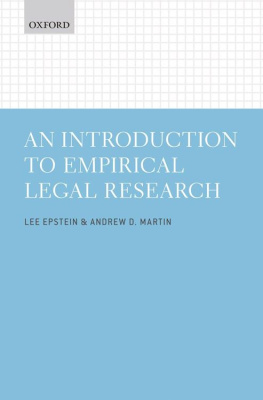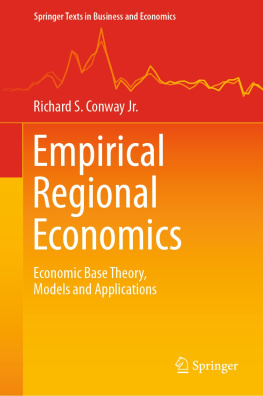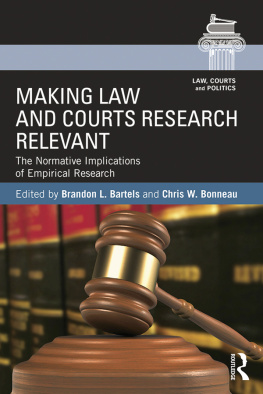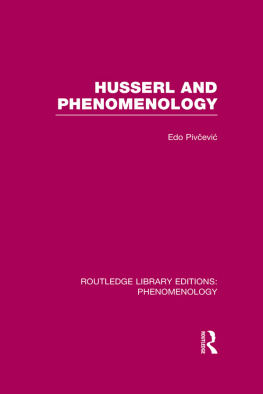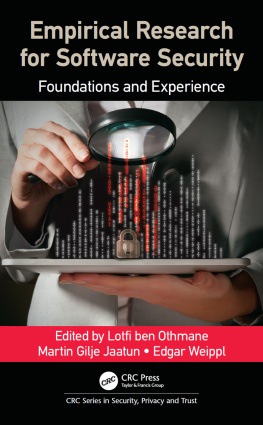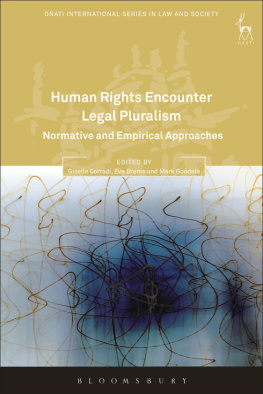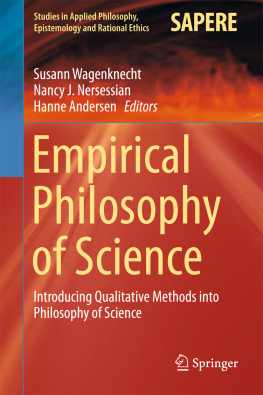An Introduction
to Empirical Legal
Research
Lee Epstein
Washington University in St. Louis
Andrew D. Martin
University of Michigan


Great Clarendon Street, Oxford, ox 2 6 dp ,
United Kingdom
Oxford University Press is a department of the University of Oxford.
It furthers the Universitys objective of excellence in research, scholarship,
and education by publishing worldwide. Oxford is a registered trade mark of
Oxford University Press in the UK and in certain other countries
L. Epstein and A. Martin 2014
The moral rights of the authors have been asserted
First Edition published in 2014
Impression: 1
All rights reserved. No part of this publication may be reproduced, stored in
a retrieval system, or transmitted, in any form or by any means, without the
prior permission in writing of Oxford University Press, or as expressly permitted
by law, by licence or under terms agreed with the appropriate reprographics
rights organization. Enquiries concerning reproduction outside the scope of the
above should be sent to the Rights Department, Oxford University Press, at the
address above
You must not circulate this work in any other form
and you must impose this same condition on any acquirer
Crown copyright material is reproduced under Class Licence
Number C01P0000148 with permission of OPSI
and the Queens Printer for Scotland.
Published in the United States of America by Oxford University Press
198 Madison Avenue, New York, NY 10016, United States of America.
British Library Cataloguing in Publication Data
Data available
Library of Congress Control Number: 2013937764
ISBN 9780199669059 (Hbk)
ISBN 9780199669066 (Pbk)
ebook ISBN 9780191646553
Printed and bound in Great Britain by
CPI Group (UK) Ltd, Croydon, cr 0 4 yy
Links to third party websites are provided by Oxford in good faith and
for information only. Oxford disclaims any responsibility for the materials
contained in any third party website referenced in this work.
To an empirical scholar extraordinaire (and one of my favorite people in the whole wide world), Jeffrey A. Segal.L.E.
To Stephanie and Olive, the two most important people in my life.
A.D.M.
Preface
To claim that research based on datathat is, empirical workhas infiltrated the legal community borders on the boring.
But its not only academics who are making greater use of data-based evidence in their research. Arguments following from empirical studies have become such a regular part of legal practice that lawyers (and law students!) neglect learning about methods for collecting and analyzing data at their own peril. We could say the same of judges who are all too often confronted with data or the results of empirical studies in cases ranging from bankruptcy to criminal law to environmental infringement to taxation.
And yet there is no book designed to provide members of the legal community with a sufficient introduction to empirical legal work so that they can evaluate existing studies, become conversant in basic statistical methods, begin to undertake investigations of their own, or all of the above. Hence An Introduction to Empirical Legal Research a book explicitly for law students, lawyers, judges, and scholars interested in law and legal institutions.
In producing An Introduction to Empirical Legal Research we drew heavily on materials we developed for an annual empirical workshop for law professors, courses we offer to law students, and a day-long educational program for judges. We also made liberal use of the handful of articles we have written on designing, executing, and presenting the results of statistical studies.
Throughout our courses and articles we bring in many practical examples. Some are of our own devising, others come from existing empirical studies, and still others from court cases. No matter the source, we go beyond mere description; we make use of data so that our students and readers can experience the research process for themselves. This is extremely important here too. Regardless of whether you are reading An Introduction to Empirical Legal Research to consume or produce empirical studies, only by understanding the process will you be able to decipher its productsincluding scholarly articles, consultants reports, and expert testimony
For readers hoping to learn enough about these products so that they can follow and evaluate them, working through the examples in the book may be suficient. For those desiring to execute empirical studies, the books website houses the tools necessary to replicate and expand the examples in the book. In particular, youll find:
Datasets. For each dataset we use in the book, weve created a comprehensive codebook and a downloadable data file in various formats (comma delimited text, Stata, SPSS Portable, R Data Format, SAS Transport, and Microsoft Excel).
Introduction to Statistical Software. We provide introductions to two different packages: Stata The introductions include step-by-step written documentation and video demonstrations of both packages.
Chapter-by-Chapter Command Files. Along with the datasets, the command files enable the reader to replicate (in Stata or R) every analysis in the book.
Best Practices Guide. This guide should help ensure that research employing R or Stata not only makes effective use of the software but also conforms to standard operating procedures in the field.
References. The website provides a list of some of our favorite books on research design, data collection methods, and statistics. It also includes links to datasets that you might find useful for law-related projects.
One final note. Its important to keep in mind the first two words of the books title. We do indeed conceptualize An Introduction to Empirical Legal Research as a primer. Mastering all the topics we cover requires far more than we can possibly convey here; it requires training. Thats why Ph.D. programs in the social sciences not only offer basic introductions to research design and statistics but also courses devoted to particular types of methodsmaximum likelihood estimation, time series analysis, and structural equation models, to name just a few. Our goal is to provide readers with a sufficient foundation to read and evaluate empirical work and, if they so desire, to begin to design studies of their own. After attending our workshops, many participants (students and faculty alike) delved further into the subjects we covered and, ultimately, went on to produce high-quality empirical studies. We hope An Introduction to Empirical Legal Research encourages a similar investment of time with equally good results.
Lets get started.
L.E.
St. Louis, Missouri, USA
A.D.M.
Ann Arbor, Michigan, USA
).
, 2) puzzles over why it is only in the twentieth century that [statistical methods made] substantial inroads into the social sciences. Were nineteenth-century social scientists unable to read?
).
This is certainly true in the United States where several early empirical studies have attained landmark status, including Clark and Shulman (, 2). The World Bank notably supports empirical work in many new democracies with the goal of increasing their economic prosperity by improving their legal systems.

